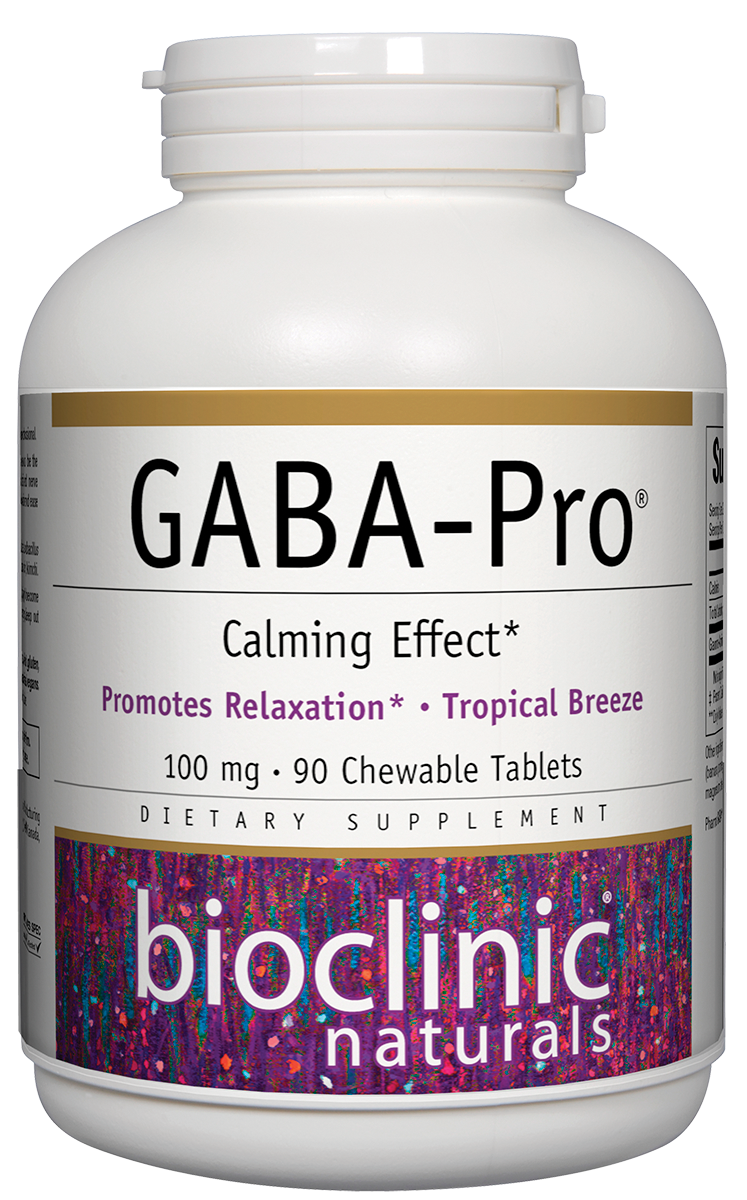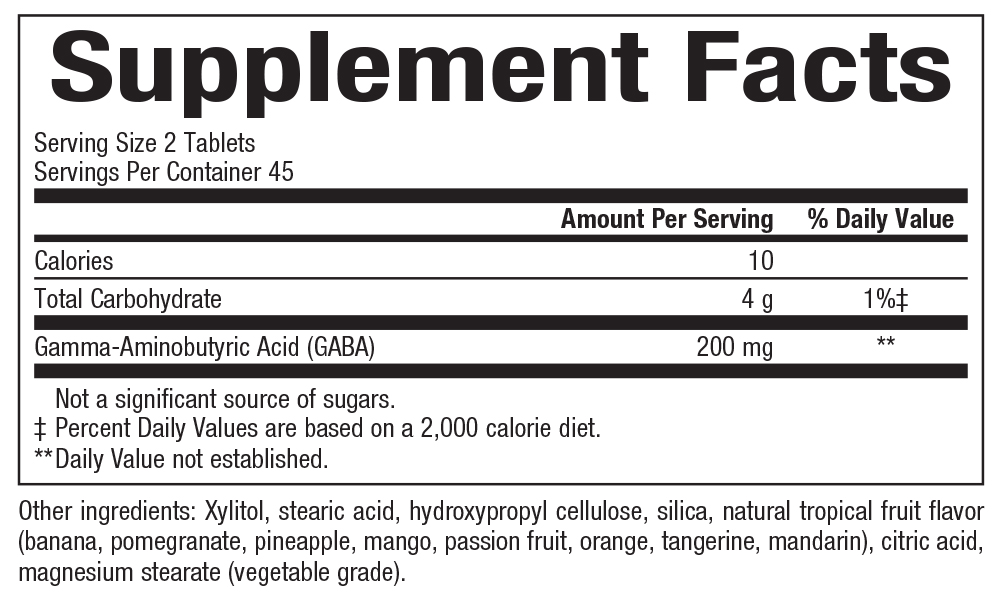
Pharma GABA • Promotes Relaxation* chewable
100 mg Tropical Breeze
90 Chewable Tablets Tropical Breeze ( SKU: 9283U )
Supplement Facts:

Dosage:
Suggested Usage: 1–2 tablets up to 3 times per day or as directed by a health care professional.
Warnings:
Consult your health care professional prior to use if you are pregnant, trying to become pregnant, breastfeeding, taking medication, have a medical condition, or anticipate surgery. Keep out of reach of children.
Allergens:
Contains no artificial colors, preservatives, or sweeteners; no dairy, sugar, wheat, gluten, yeast, soy, egg, fish, shellfish, animal products, salt, tree nuts, or GMOs. Suitable for vegetarians/vegans.
